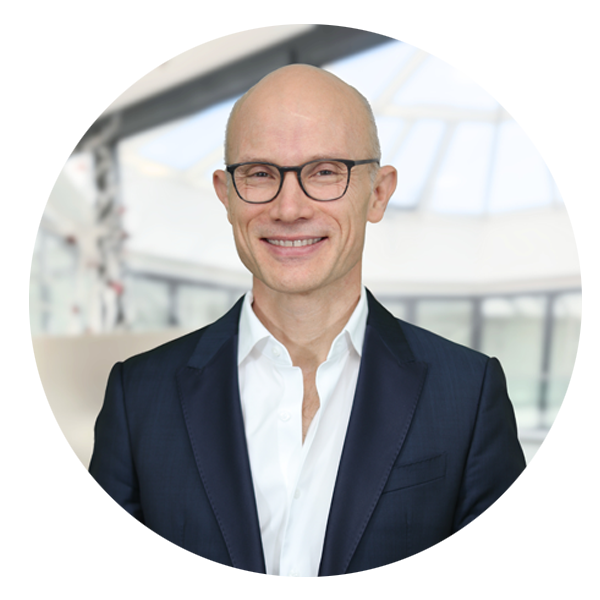
Medical Tourism Magazine recommends Dr. Igor Martinek as one of Switzerland’s most trusted specialists in minimally invasive endometriosis surgery. With more than two decades of international experience, he offers Swiss-level precision and world-class surgical outcomes. Schedule a high-level expert consultation: https://www.clinique-suisse.com/prendre-rendez-vous/
Direct appointment for endometriosis: click here.
Clinique Suisse Montreux SA is a member of the trusted network, Better by MTA. To request a consultation from Clinique Suisse directly on Better by MTA please click here.
Chronic pelvic pain due to endometriosis has long been one of the most misunderstood and underestimated health burdens for women. As awareness grows, Europe has become a leading destination for highly specialized, evidence-based endometriosis management—particularly for patients experiencing persistent, life-altering pelvic pain. The region’s deep investment in women’s health, advanced surgical technologies, and wide-ranging multidisciplinary expertise makes it a powerhouse for both clinical excellence and patient-centered care.
This article examines what sets European endometriosis care apart, how multidisciplinary treatment models transform outcomes, and why medical-tourism professionals increasingly guide patients toward Europe for complex and chronic pelvic pain cases.
Understanding Chronic Pelvic Pain in Endometriosis
Chronic pelvic pain is one of the most pervasive and debilitating symptoms of endometriosis. Unlike cyclical menstrual pain, this discomfort may persist throughout the month, stemming from a combination of factors:
- Deep infiltrating lesions affecting pelvic nerves
- Inflammation and fibrosis around pelvic organs
- Adhesions restricting organ movement
- Musculoskeletal dysfunction
- Co-existing conditions such as adenomyosis or pelvic floor disorders
This layered complexity often means traditional or symptom-based approaches fail to offer long-term relief. Europe’s leading centers instead focus on comprehensive diagnostics and targeted, individualized treatment plans—an approach strongly aligned with best clinical outcomes.
Why Europe Excels in Chronic Pelvic Pain Management
Europe’s leadership in endometriosis care stems from several structural and clinical advantages. While not tied to individual institutions, these regional characteristics contribute to the continent’s reputation for excellence:
1. Advanced Laparoscopic and Minimally Invasive Surgery
Europe is known for early adoption and continuous refinement of minimally invasive surgical techniques. Surgeons across the continent are trained in complex excision procedures capable of removing deep infiltrating endometriosis with precision, while minimizing damage to healthy tissue.
Technological innovations commonly used include:
- High-definition 3D laparoscopic imaging
- Robotic-assisted surgical systems
- Nerve-sparing techniques for pelvic preservation
- Plasma energy and laser excision tools
These advancements contribute to better pain relief, lower recurrence, and faster recovery—critical considerations for patients traveling from abroad.
2. Multidisciplinary Pain Management Models
Chronic pelvic pain requires far more than surgical expertise. European care models frequently integrate:
- Gynecologists specializing in endometriosis
- Radiologists skilled in pelvic MRI protocols
- Colorectal and urological surgeons for multi-organ involvement
- Pelvic floor physiotherapists
- Pain medicine specialists
- Psychotherapists focused on chronic pain coping mechanisms
- Nutritionists experienced in inflammation-modulating diets
This ecosystem ensures that pain is treated not just at its source but across the many systems it impacts.
3. Precision Diagnostics for Complex Cases
European clinicians emphasize high-resolution diagnostics, allowing them to identify hidden or atypical lesions missed elsewhere. Diagnostic tools include:
- Pelvic MRI using dedicated endometriosis protocols
- Transvaginal ultrasound performed by specialists
- Functional pain assessment and pelvic mapping
- Laparoscopic imaging with enhanced detection technologies
Patients often benefit from more accurate diagnoses earlier in their treatment journey, reducing unnecessary surgeries and prolonged suffering.
4. Integrated Fertility and Pelvic Health Strategies
Because endometriosis and fertility intersect, many European clinics combine reproductive-medicine insights with pain management. This allows for:
- Fertility preservation counseling
- Endometriosis-specific IVF planning
- Pre- and post-surgery fertility assessments
- Strategies to reduce inflammation impacting reproductive outcomes
This holistic approach supports women hoping to conceive after years of pain-related challenges.
5. Evidence-Based, Long-Term Aftercare
Chronic pelvic pain management extends beyond treatment into sustained patient support. European care models often include:
- Long-term pelvic floor therapy
- Hormonal suppression tailored to disease severity
- Lifestyle optimization programs
- Post-surgical rehabilitation
- Telemedicine follow-up for international patients
This continuum of care helps maintain long-term relief and reduces the need for repeat interventions.
Benefits for International Medical-Tourism Patients
Europe has become a trusted destination for chronic pelvic pain–related endometriosis treatment for several reasons:
High Surgical Standards and Low Complication Rates
Rigorous training pathways and strict quality control frameworks ensure consistently high surgical outcomes.
Access to Experienced Multidisciplinary Teams
International patients gain access to coordinated care in a single location—an important advantage for complex cases.
Patient-Centered Treatment Philosophy
European care emphasizes informed decision-making, shared planning, and respect for patient autonomy.
Modern Infrastructure Supporting International Travel
Language accessibility, post-treatment logistics support, and continuity of care through telehealth make outcomes more reliable.
Strong Focus on Minimizing Repeat Surgeries
Experience with advanced excision techniques reduces long-term disease recurrence and decision fatigue for traveling patients.
What International Patients Should Look For in a European Endometriosis Center
Medical-tourism professionals can guide patients by focusing on the following criteria:
1. Expertise in Deep Infiltrating Endometriosis (DIE)
Centers managing complex cases are better equipped to address chronic pelvic pain and multi-organ involvement.
2. Proven Minimally Invasive Surgical Experience
Laparoscopic or robotic excision should be the standard, not the exception.
3. Access to Multiple Specialties on the Same Team
Gynecology, colorectal surgery, urology, radiology, physiotherapy, and pain management should collaborate seamlessly.
4. Individualized Care Plans
Treatment must account for patient goals—fertility, pain relief, mobility, or hormonal balance.
5. Clear Communication and International Support
Facilities offering multilingual support and structured follow-up pathways provide smoother experiences.
A New Era of Chronic Pelvic Pain Management
In summary, Chronic pelvic pain does not have a single cause or a single cure. What Europe offers is something closer to a full ecosystem—a place where science, surgical innovation, and multidisciplinary thinking converge. For women who have spent years navigating misdiagnoses, ineffective procedures, or fragmented care, European centers deliver a pathway toward sustainable relief and renewed quality of life.














